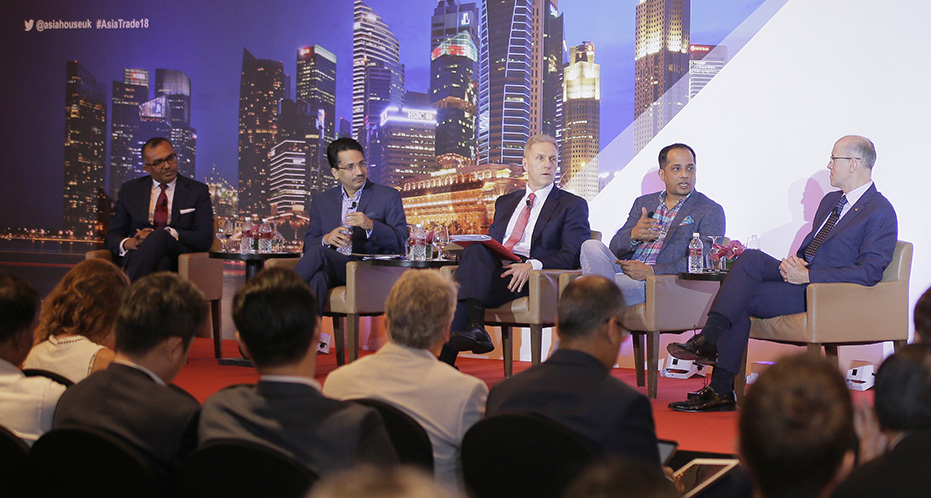Driving commercial and political engagement between Asia, the Middle East and Europe
Driving commercial and political engagement between Asia, the Middle East and Europe
Driving commercial and political engagement between Asia, the Middle East and Europe

Asia House’s major trade dialogue in Singapore, Asia Trade in the New Global Order, explored the impact of new technologies on world trade. Watch the ‘Creating a Digital Ecosystem’ panel discussion below.
The digital economy in Southeast Asia “is taking off in a very big way”, but the advent of data nationalism could derail progress, delegates at Asia House’s major trade conference in Singapore heard.
Speaking on a panel on ‘Creating a Digital Ecosystem,’ Kiren Kumar, Assistant Managing Director, Singapore Economic Development Board, emphasised the robust nature of the region’s tech sectors.
“We are seeing the digital economy taking off in a big way in Southeast Asia and ASEAN,” he said. “It will be a $240 billion market in next five years, there will be 1.7 million new jobs, 350 million users of technology.”
The optimism being felt towards the region was reinforced by Marcus Treacher, Ripple’s Senior Vice President for Customer Success. Offering an insight from Ripple, Treacher said: “We work globally, but we’re seeing that most of the energy and drive is in Southeast Asia, the Middle East, and South Asia.”
He described a commitment to growth, energy, dynamism, and investment, and “a can-do mentality around the Asia region.”
“Most of our ground-breaking innovation is happening here,” he added.
Interestingly, there is an emerging trend of incumbent businesses regaining ground against FinTech disrupters in the region, IBM’s Syed Shahid Hussain, Managing Partner, Financial Services Sector for ASEAN, revealed.
“It is a matter of survival – if you don’t invest you won’t be there,” he said, highlighting the greater resources at the disposal of established companies which is driving this trend. But data is just as important, and incumbents have an advantage here, too.
“We are seeing incumbents coming back, striking back at FinTechs and driving innovation,” Hussain said.
However, despite a lively, competitive and fast-growing digital economy in Southeast Asia, the region has exposure. For Sopnendu Mohanty, Chief FinTech Officer, Monetary Authority of Singapore, there are worrying clouds on the horizon.
“We have to acknowledge that there’s another challenge appearing,” he said. “The whole policy across the globe around data localisation.
“There’s a reverse thinking happening. Countries are getting nationalistic about data. They’re saying “my data, my country, stay in my country!”
“If that starts happening, all the AI companies trying to take advantage of data will start struggling.”
The discussion, chaired by Asia House Chief Executive Michael Lawrence, also explored the key technologies driving change in the trade landscape, with blockchain coming under particular focus. The panel also looked to the future, and to the shifts that will likely take place across business models and regulation.
Watch the full discussion
